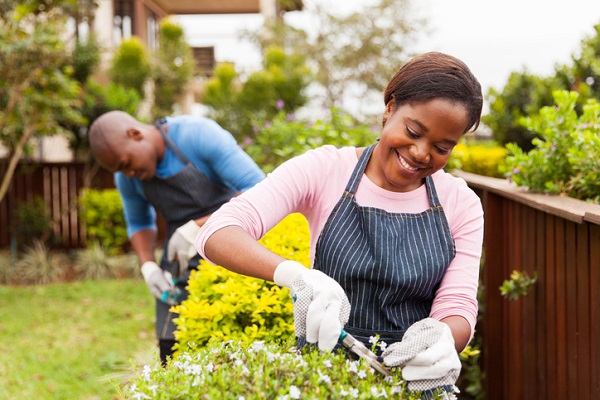A home garden can be a fulfilling pastime. It can also be frustrating to get started. Where should you start and what should you consider? Today, we’ll give you five tips to help you plan a lush and productive home garden.
Choose the Right Plants
The first step to planning a home garden is deciding what you want to grow. Whether you want fruits and vegetables, succulents and ornamentals, or native wildflowers and pollinators, it’s important to decide before you venture out to buy.
As you think about what you want to grow, consider your climate and conditions. For instance, if you live in a dry climate but want to grow lemons, you’ll likely be disappointed. Certain plants are finicky about the climates and conditions they thrive in. Research the best plants for your climate before you commit to your plans.
Additionally, think about the space you’ll use for your garden. If you don’t have much space, you’ll need to focus on the plants you choose. For instance, zucchini is a popular vegetable but it’s also a sprawling plant. If you don’t have much room and try to plant other vegetables with zucchini, you might find that the zucchini spreads out so much that it weakens or kills your other plants.
Check to see which plants complement each other (e.g., beans and squash). You don’t want your plants competing with one another to survive!
Start Small
If you’re starting a garden from scratch, it may be tempting to try a little bit of everything. But everything you plant will require time, resources, and money from you. Especially if you’re gardening for the first time, start small and easy. Choose a few hardy plants to build your confidence and your skill. Fruits like tomatoes, veggies like radishes, and herbs like mint (if carefully placed) are great for beginners.
Avoid Invasive Plants
Some plants that are native to one area may be invasive in another. Invasive plants can devastate native plants when introduced. And sometimes, you can even find invasive plants at your gardening center. For example, did you know that bamboo is an invasive plant? Even seemingly harmless things like wildflower packets can cause problems in the long term.
A good way to avoid invasive plants is to contact your local extension office. In addition to listing plants to avoid, your local extension office can give you expert tips and ideas for your garden. From helping you choose the best plants for your situation to improving soil conditions, extension offices can help you go the extra mile with your home garden.
Designate Space & Prepare the Soil
Once you’ve decided what you want to plant and what you want to avoid, it’s time to start allocating space. As you pick your spots to plant, check how much sun each spot gets. Certain plants need more sunlight than others. Additionally, if you live in hotter climates prone to drought, you need to see whether any spots get an abundance of sun. Too much sun can be just as bad as not enough.
Give anything you plant enough room to establish roots and spread out. Follow the instructions on any seed packets or plants you purchase.
If you want to plant your home garden in the ground, you may need to prepare your soil. The first thing to do is make sure there are no electric, gas, or water lines running where you intend to plant.
You can also test your soil’s pH and nutrient mix using a store-bought testing kit. This can help you determine which kinds of fertilizers to buy to supplement your soil.
After confirming that you have no lines running where you want to plant, till, weed, and fertilize your soil. Plant, giving each plant enough space to flourish, and water regularly.
Water, Weed, & Watch Out for Pests
Whether you plant seeds or pre-sprouted plants, give them plenty of water to start. They’ll need it to develop strong root systems. Every few days, check for weeds growing around your plants. Weeding will be an all-season event, and you want to catch them early. Resist the urge to use weed killers, and instead carefully dig weeds out at the root.
Finally, watch out for pests. For insect pests, like aphids, consider buying and releasing lady bugs or a praying mantis into your garden. You can usually find them at your local gardening store. These insects can hunt and kill many plant-munching pests.
If you’re growing fruits and vegetables, be on the lookout for squirrels and raccoons. A safe and non-harmful way to keep these pests away is by sprinkling cayenne pepper in the soil around your plants.
If you catch squirrels or raccoons eating your plants, you can also bang pots and pans to scare them away. If you do this enough times, they’ll stop coming back.









